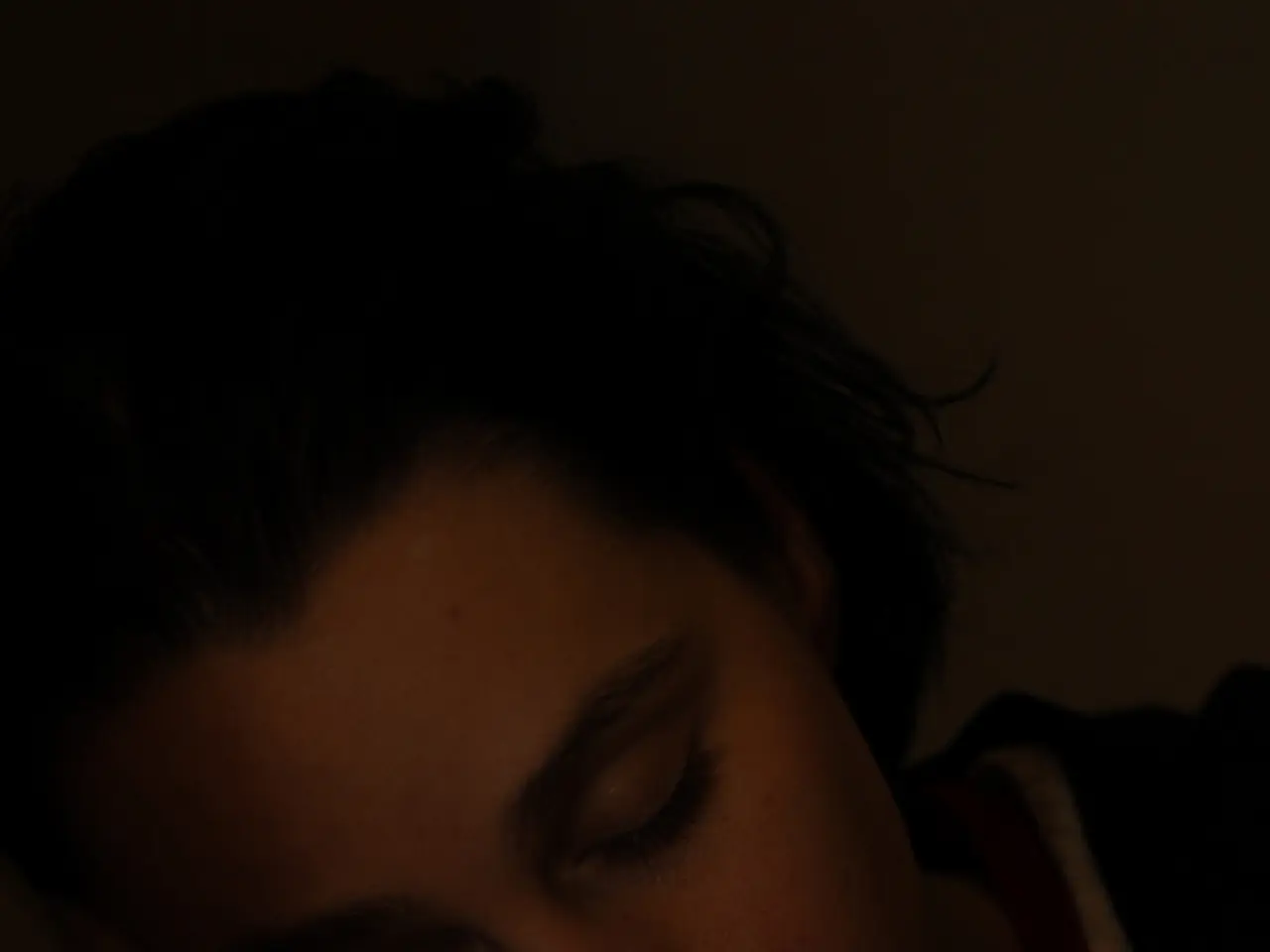Sleep-related Excessive Tiredness: Origin, Signs, and Remedies
Excessive daytime sleepiness, also known as hypersomnia or EDS, is a common issue that affects many individuals. Understanding the causes and available treatments can help those suffering from this condition manage their symptoms effectively.
One of the most common causes of EDS is sleep apnea. This disorder involves pauses in breathing or shallow breathing during sleep, leading to fragmented sleep and excessive daytime sleepiness. Treatment typically involves the use of a Continuous Positive Airway Pressure (CPAP) machine, oral appliances, and lifestyle changes such as weight loss.
Narcolepsy, a neurological disorder characterized by excessive daytime sleepiness and sudden sleep attacks, is another common cause. Management includes medications like stimulants to increase alertness and lifestyle changes such as regular sleep schedules and short naps.
Insomnia and Restless Legs Syndrome (RLS) can also lead to EDS. Insomnia can cause inadequate restful sleep, while RLS causes discomfort in the legs, disrupting sleep quality. For insomnia, cognitive behavioral therapy for insomnia (CBT-I) and sleep hygiene practices are recommended. RLS can be managed with medications like dopamine agonists and lifestyle changes such as regular exercise.
Depression and neurological disorders like multiple sclerosis or Parkinson's disease can also contribute to EDS. Treatment involves addressing the underlying condition. For depression, therapy and antidepressant medications are used. Neurological conditions require specific treatments depending on the disorder.
Nutrient deficiencies, particularly in iron or other essential nutrients, can cause excessive fatigue and sleepiness. Supplementing with the deficient nutrient can help alleviate symptoms.
Certain medications and substance abuse can induce excessive sleepiness. Adjusting medications under medical guidance or seeking help for substance abuse can address these issues.
Genetic and environmental factors, such as stress or irregular sleep patterns, can contribute to EDS. Lifestyle modifications such as maintaining a consistent sleep schedule, reducing stress, and avoiding triggers can help manage these factors.
Each cause requires a tailored approach for effective management and treatment. It is important to consult a healthcare professional for a proper diagnosis and treatment plan.
Excessive sleepiness is not a disorder in itself but a symptom of insufficient sleep or an underlying health condition. Approximately 10-20% of people experience excessive sleepiness to some degree.
Many treatment plans incorporate simple lifestyle changes that can help improve sleep quality, such as eating a healthful, balanced diet, limiting caffeine and alcohol intake, exercising regularly, creating a relaxing sleep environment, taking a warm bath before bedtime, keeping a consistent sleep schedule, and avoiding highly addictive drugs to assist with sleep.
The American Academy of Sleep Medicine recommends adults get between 7 and 8 hours of sleep each night for optimal alertness. People who experience excessive sleepiness may notice symptoms such as fatigue, mental fog, inability to focus, grogginess, sluggishness, difficulty waking up or getting out of bed in the morning, feeling sluggish and unmotivated throughout the day, napping frequently throughout the day, falling asleep at inappropriate times, lapses in attention, loss of appetite, difficulty remembering events throughout the day, difficulty concentrating, irritation, poor performance in work or school activities, and additional symptoms if their excessive sleepiness is the result of an underlying health condition.
Sleep deprivation, where a person does not get enough sleep, can lead to excessive sleepiness. Other conditions such as obstructive sleep apnea, central sleep apnea, insomnia, and restless legs syndrome can also cause EDS.
Correctly diagnosing the underlying cause of excessive sleepiness is important for establishing the best treatment. With the right approach, those suffering from EDS can find relief and improve their quality of life.
- Sleep Apnea, a condition characterized by pauses in breathing during sleep, is a common cause of excessive daytime sleepiness, necessitating the use of devices like CPAP machines and lifestyle changes.
- Insomnia and Restless Legs Syndrome (RLS) can lead to EDS, as inadequate sleep and leg discomfort can disrupt sleep quality, highlighting the need for treatments such as cognitive behavioral therapy and dopamine agonists.
- Depression and certain neurological disorders can contribute to EDS, requiring treatment of the underlying condition, such as therapy for depression and specific treatments for neurological conditions like multiple sclerosis or Parkinson's disease.
- Nutrient deficiencies, especially in iron and other essential nutrients, can cause excessive fatigue and sleepiness, which can be alleviated with nutrient supplementation.
- Certain medications and substance abuse can induce excessive sleepiness, emphasizing the importance of adjusting medications under medical guidance or seeking help for substance abuse.
- Environmental factors like stress and irregular sleep patterns, as well as genetic factors, can contribute to EDS, making lifestyle modifications such as maintaining a consistent sleep schedule, reducing stress, and avoiding triggers essential for management. It's crucial to consult a healthcare professional for an accurate diagnosis and personalized treatment plan.




